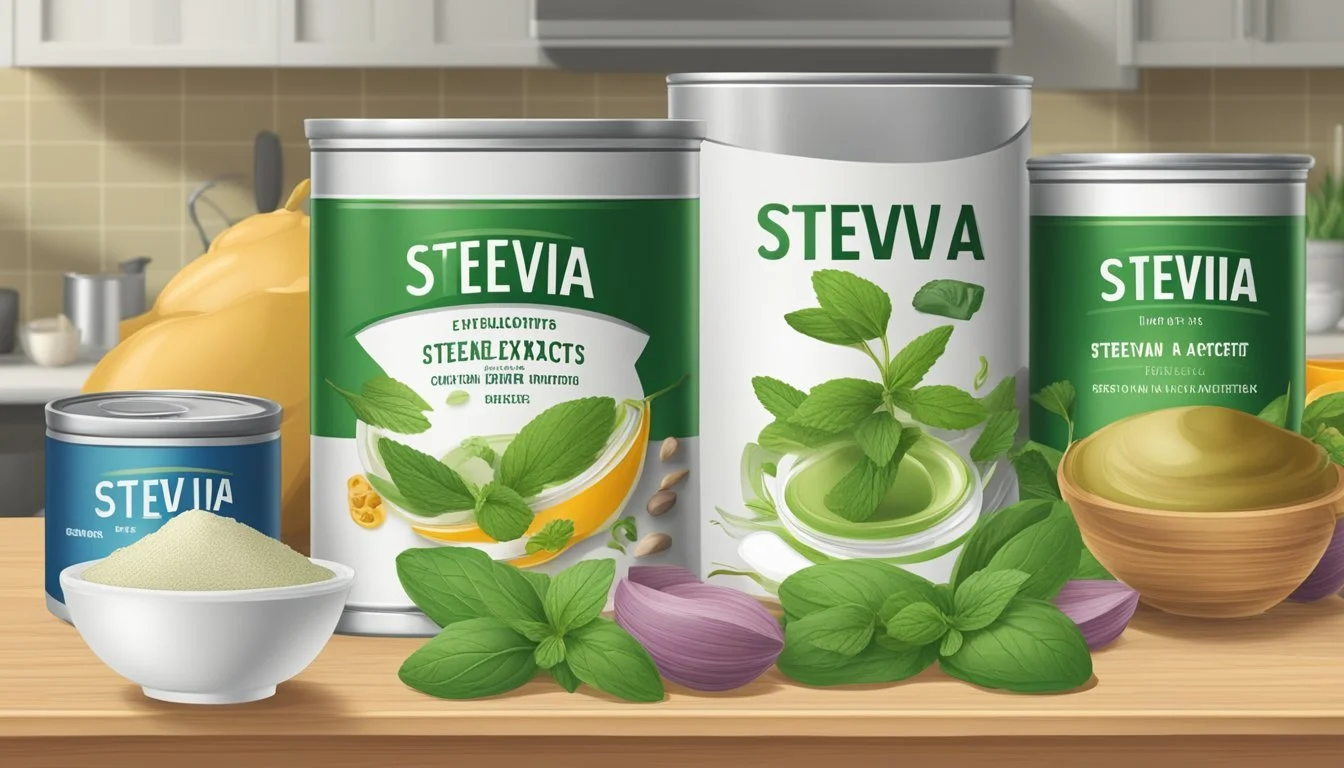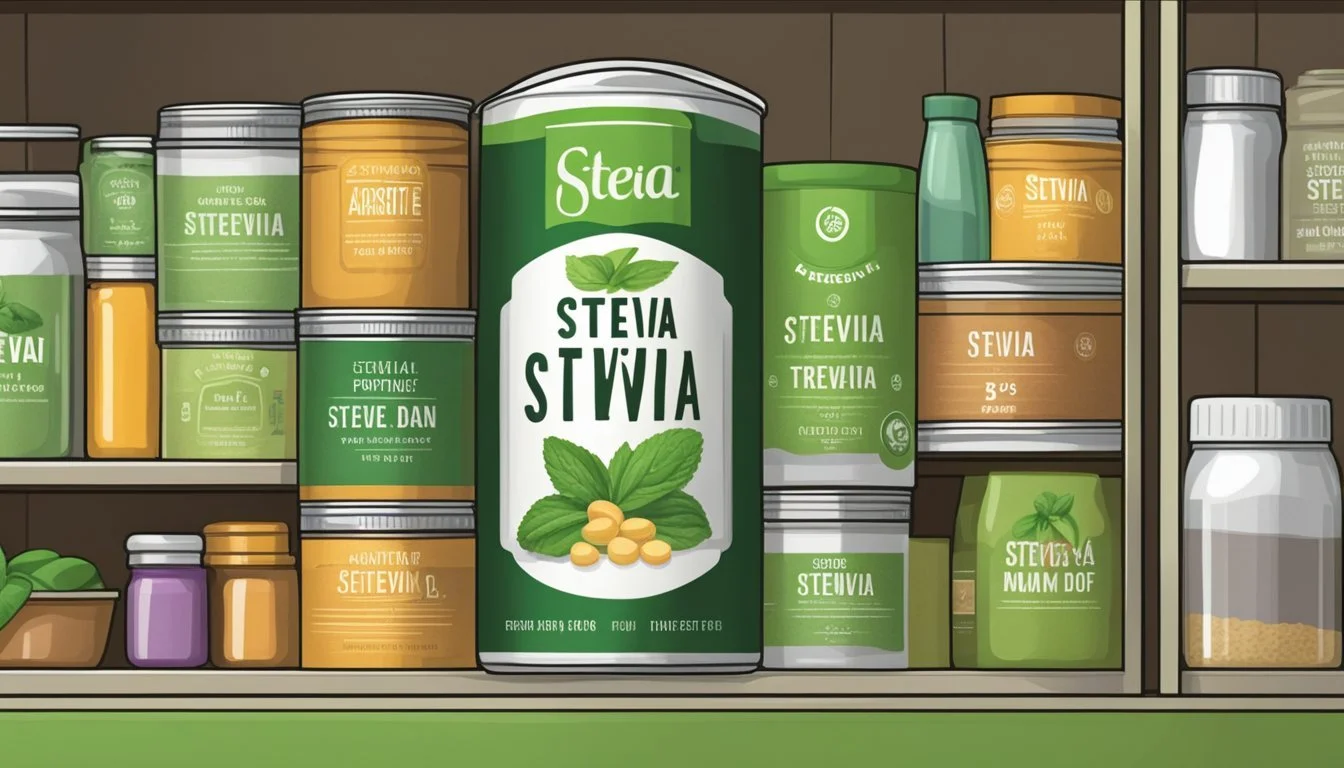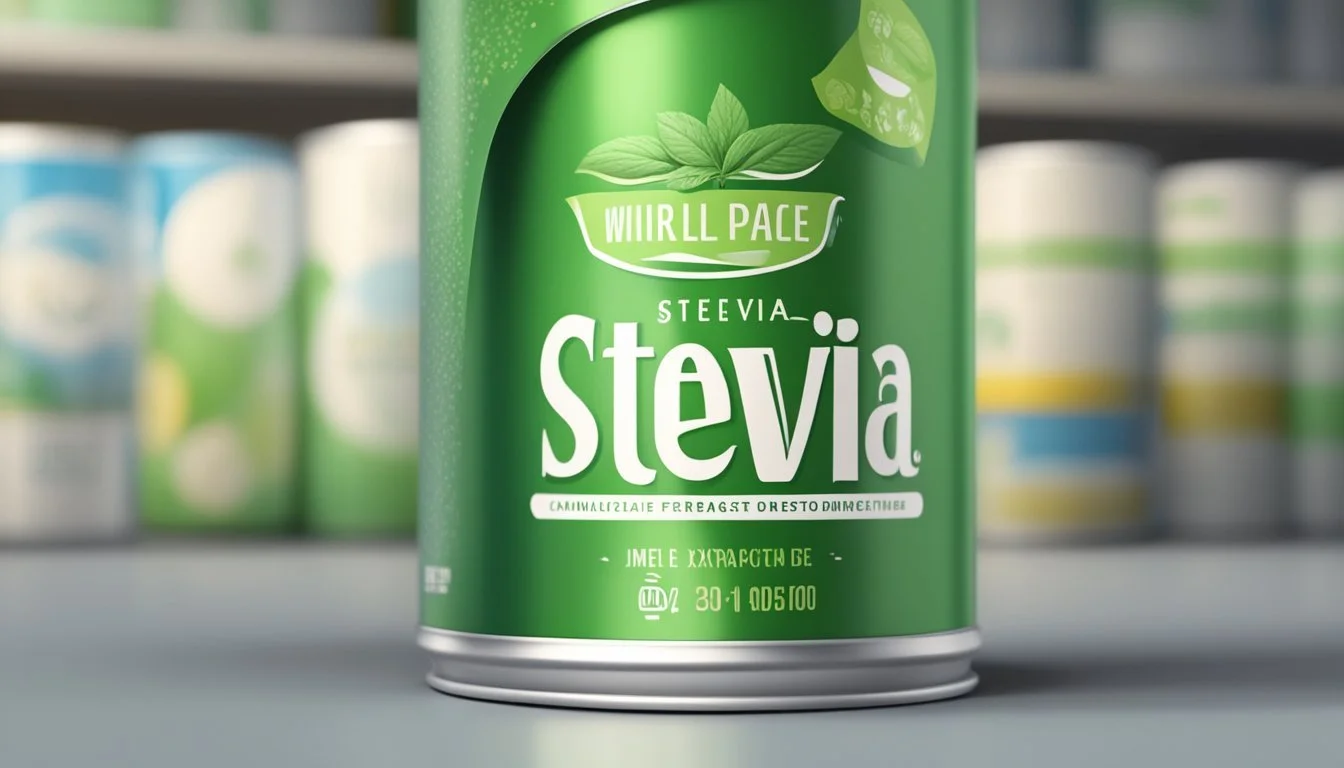How Long Does Canned Stevia Extract Last?
Understanding Shelf Life and Storage
Canned stevia extract is a popular sugar substitute known for its exceptional shelf life, owing to its natural stability. This longevity is a key feature that distinguishes it from traditional sweeteners, offering users the convenience of a long-lasting product. Commercial stevia extract, whether in liquid or powder form, typically provides a shelf life of several years. Manufacturers often indicate a "best by" date on the packaging, which usually reflects a period of around three years from the date of manufacture.
Proper storage is crucial in preserving the quality and sweetness of stevia extract over time. Consumers should ensure that the extract is kept in a cool, dry place away from direct sunlight and moisture to prevent degradation. Even beyond the "best by" date, stevia can maintain its sweetness and quality, making it a reliable option for those looking to reduce sugar intake without frequently replenishing their supply.
Overview of Stevia
Stevia is a plant-based sweetener renowned for its sweetness and stability. This section explores its roots and distinctive chemical profile.
Origins of Stevia
Stevia, deriving from the Stevia rebaudiana plant, is native to South America. It has been utilized by indigenous peoples for centuries as a natural sweetener and for medicinal purposes. The plant is a member of the chrysanthemum family and thrives in tropical and subtropical climates.
Chemical Composition of Stevia Extract
The sweetness of stevia extract comes from compounds called steviol glycosides. These compounds are heat-stable, pH-stable, and do not ferment, which makes stevia a favored choice as a natural sweetener in various products. Here's a brief overview of its composition:
Stevioside: Contributes to the sweet flavor, but with some bitterness.
Rebaudioside A: Offers a cleaner sweet taste and is often preferred in stevia sweeteners.
Rebaudioside C, D, and E: Present in smaller amounts and contribute to the overall sweetness profile.
Steviol glycosides are extracted and purified from the plant's leaves and are responsible for stevia's sweetening properties, which are significantly more potent than regular sugar.
Health Implications of Stevia Consumption
Stevia, a zero-calorie sweetener derived from the leaves of the Stevia rebaudiana plant, has been associated with various health benefits, particularly for individuals with diabetes and those monitoring their weight. While it offers some advantages, it is important to consider its possible health concerns as well.
Benefits for Diabetes Management
Stevia has a negligible effect on blood glucose levels, which means it can be a suitable sugar substitute for people with diabetes. Unlike artificial sweeteners, natural stevia extract does not trigger a spike in insulin levels, thus potentially aiding in glucose regulation for those managing diabetes.
Weight Control and Low-Calorie Benefits
As a zero-calorie alternative to sugar, stevia can aid in weight control. Choosing stevia may help in reducing overall calorie intake, which can be beneficial for managing body weight and suppressing appetite. Its sweetness without the associated calories makes it a popular choice among low-calorie diets.
Possible Health Concerns
Despite stevia's benefits, there are potential health concerns to consider. A few individuals may experience minor side effects such as nausea or bloating. Moreover, studies on the long-term effects of stevia consumption on human health are ongoing, with current evidence suggesting it is safe when consumed within the recommended daily intake limits. Concerns over blood pressure have been noted due to stevia's possible blood pressure-lowering effects, which generally are seen as beneficial unless in individuals with already low blood pressure. While there have been discussions about the link between sweeteners and cancer, to date, stevia has not been conclusively associated with an increased risk of cancer, and most health authorities consider it safe when used appropriately.
Comparison With Other Sweeteners
In examining the longevity of canned stevia extract, it proves useful to place it within the broader context of sweeteners, considering aspects such as type, caloric content, and implications for weight management.
Artificial vs. Natural Sweeteners
Canned stevia is a natural, zero-calorie sweetener derived from the leaves of the Stevia rebaudiana plant, distinguishing it from artificial sweeteners like aspartame and sucralose. Artificial sweeteners are synthetic and may sometimes contain low-calorie compounds. In contrast, natural sweeteners like stevia continue to gain popularity as a dietary supplement for those seeking sugar alternatives without artificial ingredients.
Stevia vs. Sugar
Stevia has a competitive advantage over traditional sugar in terms of calorie content and shelf life. While sugar – a high-calorie sweetener that can affect weight control – typically expires after two years, canned stevia extract can last up to three years under proper storage conditions without losing its sweet taste. Some brands may blend stevia with other sugar substitutes like erythritol, dextrose, or maltodextrin to balance taste and stability, potentially affecting its longevity.
Stevia in Weight Loss Strategies
For those looking to lose weight or manage dietary intake, stevia serves as an optimal alternative to high-calorie sweeteners. It offers a sweet taste without the associated calorie load. Low-calorie sweeteners like stevia are commonly included in weight control strategies by providing a desired sweetness without contributing significantly to caloric intake. However, consumers should be aware of the presence of additional ingredients, as blends might have higher caloric content compared to pure stevia extract.
Stevia Extract Forms and Uses
Stevia extract is a versatile sugar alternative available in various forms, each suited for specific culinary applications. These forms range from liquids to powders, suitable for both cooking and baking.
Liquid Stevia
Liquid stevia, also known as stevia drops, is a concentrated sweetener that is popular for its ease of use, particularly in beverages. It is used to sweeten everything from tea and coffee to smoothies and cocktails without the added calories of sugar. Brands like SweetLeaf offer a wide range of flavored liquid stevia products that are convenient for enhancing the taste with just a few drops.
Stevia Powder
In its powder form, stevia serves as an ingredient in baking and cooking due to its heat stability. Stevia powders, such as Truvia and Stevia in the Raw, are common choices for replacing sugar in recipes. The powder is finely ground and is often used in a ratio that is significantly less than that of regular sugar because of its high sweetness intensity.
Additional Forms of Stevia
Other forms of stevia include stevia tablets, which are portable and convenient for sweetening drinks on-the-go, and granulated stevia, used for cooking and baking in a bulk format. These forms are designed to measure more similarly to sugar, making it a simple swap for people trying to reduce sugar intake in their diets.
Storage Recommendations for Stevia Products
When it comes to maintaining the quality and longevity of stevia products, understanding optimal storage conditions is paramount. This section outlines the ideal storage environment, shelf life, and how to recognize when stevia extract is no longer suitable for use.
Ideal Storage Conditions
To preserve the quality of stevia extracts, they should be stored in a cool, dry place such as a pantry or cupboard, away from direct sunlight and heat. Keeping stevia in an airtight container is essential to prevent moisture from causing caking and to maintain its potency. If a kitchen experiences high humidity, a more controlled environment like a cupboard away from sources of heat or moisture is advisable.
Shelf Life of Stevia Extract
The shelf life of canned stevia extract can reach up to three years if unopened and stored under ideal conditions. After opening, it is important to seal the container tightly after each use. Stevia does not typically require refrigeration, but doing so can extend its freshness. Packets of stevia extract should also be kept sealed in an airtight container to avoid exposure to air and humidity.
Signs of Spoilage
Stevia products do not spoil in the traditional sense, but they can degrade in quality over time. Indicators of spoilage include:
An off odor that differs from the extract's naturally sweet scent.
The presence of lumps or caking, suggesting moisture has entered the package.
A change in taste, where the sweetness may be accompanied by a bitter flavor.
It's best to discard stevia if it exhibits any of these spoilage signs, even if it has not reached the expiration date. Always inspect stevia before use and trust one's senses to determine if it should be used or thrown away.
Practical Tips for Using Stevia
When opting for stevia as a sugar substitute, consumers desire a taste experience that mirrors sugar without the calories. To achieve this, it's essential to understand how to best use stevia in various formats—whether liquid, powdered, or granulated.
Optimizing Sweetness
To capture the optimal sweetness of stevia without a bitter aftertaste, it is crucial to measure precisely. For liquid stevia drops, start with a few drops and increase as needed—it is significantly sweeter than sugar. When using powdered packets or granulated forms intended for coffee or teas, follow the conversion instructions provided by the brands like SweetLeaf, as they often use a bulking agent to balance the zero-calorie steviol glycosides.
Preventing Clumping
Stevia is hygroscopic and can absorb moisture leading to clumps in the powder form. To prevent clumping, store stevia in a dry and cool environment in an airtight container. For bulk purchasing, consider using silica gel packets to absorb excess moisture. When utilizing stevia from packets or jars, use dry utensils to maintain a smooth, clump-free consistency.
Stevia in Cooking and Baking
Cooking and baking with stevia imply a direct substitution for sugar isn't always a 1:1 ratio due to its intense sweetness and sometimes different textural properties. For baked goods, stevia may also be mixed with a bulking agent to achieve a similar volume and texture as sugar. Since stevia retains its sweetness when heated, it is excellent for zero-calorie sweetening in both smoothies and hot beverages like coffee and tea. However, note that some individuals may experience a taste difference or slight bloating when consuming stevia, so adjustments in quantity should be made based on personal preference.
Regulatory Aspects and Safety
Before diving into specific regulatory stances, it's critical to understand that the safety and longevity of canned stevia extract are grounded in FDA guidelines and their GRAS status. These regulatory aspects ensure that consumers can trust the quality and safety of stevia extract.
FDA Stance on Stevia
The U.S. Food and Drug Administration (FDA) has scrutinized steviol glycosides, a purified component of the stevia plant, for use in food products. This evaluation is based on a comprehensive body of knowledge regarding the safety of these purified constituents. Contamination is a key consideration; the FDA ensures that sweeteners like stevia extract meet stringent safety standards to minimize risks.
FDA's Position: Cautious endorsement subject to safety assessment.
Primary Concern: Safety and potential side effects.
GRAS Status
Stevia extract has achieved Generally Recognized as Safe (GRAS) status, which means that experts consider it safe when used as intended in food production and consumption. The GRAS designation is important as it relates to the limited side effects documented, upholding product safety:
Criteria for GRAS: Safety based on scientific principles.
Relevance: Acknowledgment of minimal side effects and affirmation of product purity.
This focus on the regulatory aspects and safety by the FDA ensures that canned stevia extract maintains its quality over time and poses minimal risk to consumers when used according to guidelines.
Common Questions About Stevia
In this section, readers will find clear, concise information on the nuances of stevia's taste, its suitability for various diets, and potential interactions with medications.
Taste and Aftertaste Issues
When it comes to sweeteners, stevia is known for its intense sweet taste. However, some individuals may notice a bitter aftertaste, which varies depending on the stevia product and individual taste perception. The bitter aftertaste is often attributed to certain compounds present in stevia.
Stevia for Specific Diets
Stevia is suitable for many diets as it contains no calories and does not raise blood sugar levels. It is often recommended for people with diabetes or those following a ketogenic diet. Additionally, since it is plant-derived, stevia is compatible with vegan and vegetarian diets.
Diabetic diet: Yes
Ketogenic diet: Yes
Vegan/Vegetarian: Yes
Interactions With Medications
Stevia's effect on medication largely remains neutral, but it is important to consider that the sweetener could influence blood sugar levels. Those on medications for diabetes or hypertension should consult healthcare providers to ensure stevia's sweetening properties don't interact with their prescribed regimen.
Conclusion
When it comes to the longevity of canned stevia extract, consumers can rest assured knowing that it typically maintains its sweetness and quality for an extended period. Under optimal storage conditions, canned stevia extract generally lasts up to 3 years. This is due to the absence of water in the extract, which minimizes the risk of bacterial growth and spoilage.
The following points are essential for preserving the quality of canned stevia extract:
Storage: Keep the extract in a cool and dry place away from direct sunlight.
Packaging: Ensure that the container is tightly sealed after each use to prevent exposure to air and moisture.
For consumers who are attentive to expiration dates, it's helpful to note that while the "best before" date acts as a quality indicator, canned stevia extract often remains safe to consume beyond this period. It's important to conduct a quick check for any signs of spoilage before use, including changes in appearance or odor, although spoilage is rare.
Consumers can rely on the inherent stability of stevia extract to last well within—and possibly beyond—the indicated shelf life, making it a reliable sweetener choice in longer-term food storage.
Note: These guidelines reflect general expectations and should not replace personal judgment or manufacturer's recommendations.











